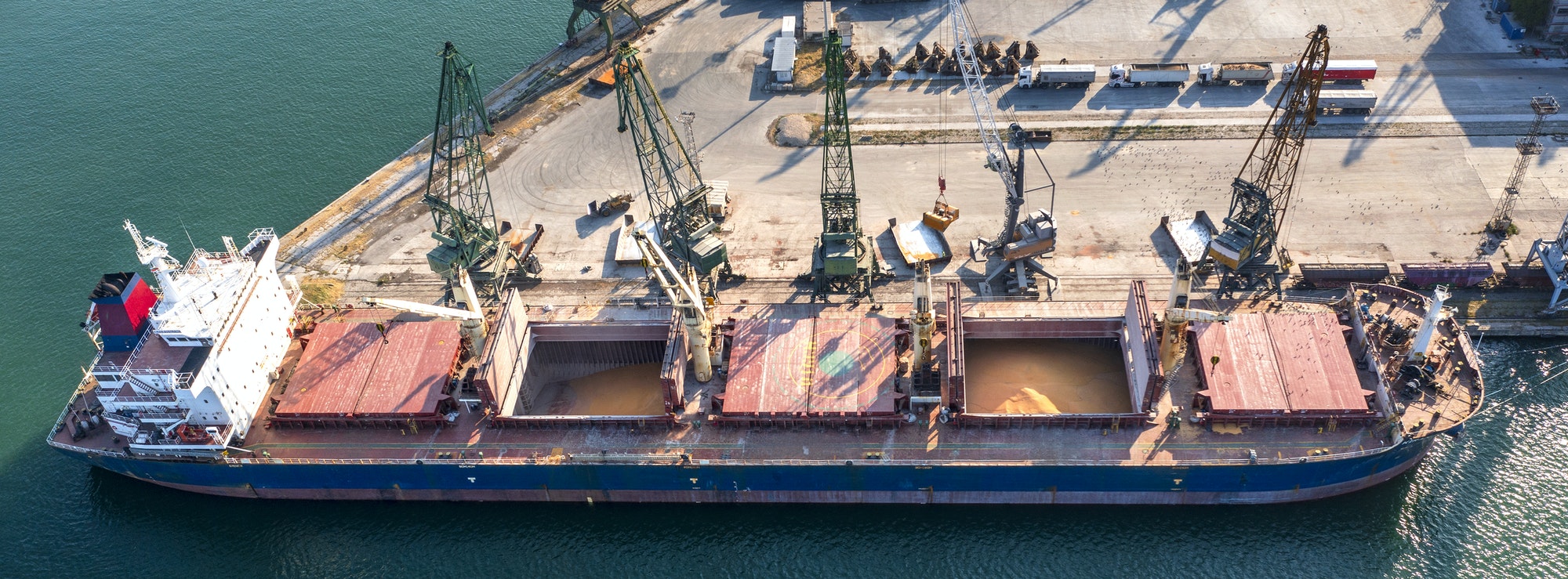How should UK businesses legally handle the export of dual-use goods?

From innovative software to cutting-edge technology, businesses in the United Kingdom are at the forefront of global trade. These companies not only drive the UK economy but also contribute to international industries and markets. However, the export of certain goods and technologies can have far-reaching implications in today's highly interconnected world. You need to be aware of the legal complexities involved in the export of dual-use goods. These are items that can be used for both civil and military applications, and their export is subject to stringent regulation to prevent misuse.
To navigate the intricacies of exporting dual-use goods and maintain compliance with the law, UK businesses must understand the export control regulations, the concept of dual-use items, the requirement for licences, and the potential penalties for infringements. This guide offers an overview of these aspects.
Cela peut vous intéresser : How can UK businesses ensure their website complies with the Cookie Law?
Understanding Export Controls and Dual-Use Items
The UK government regulates the export of certain goods and technology through the Export Control Order, which is enforced by the Export Control Joint Unit (ECJU). This legislation is designed to maintain international security, uphold UK foreign policy and meet commitments under international law. It covers military goods, dual-use items, and associated technology and software.
Dual-use items, as the term suggests, are goods, software, or technology that can have both civilian and military applications. This can include everything from chemicals used in pharmaceuticals to software that can be employed in both civil engineering and missile technology.
En parallèle : What are the legal requirements for UK businesses to conduct health surveillance of employees?
Under the Export Control Order, you must obtain a licence to export dual-use items. Failure to do so could result in heavy penalties, including financial sanctions and imprisonment.
Complying with Export Control Regulations
To ensure compliance with export control regulations, you need to understand which items are controlled and the criteria for control. Controlled items are listed in the UK Strategic Export Control Lists, which is updated regularly.
The list categorises dual-use items into several categories, including electronics, computers, telecommunications, and information security, among others. It’s crucial for you to regularly check this list if your business deals with products that fall under these categories.
Apart from the List, the UK also follows international control regimes, including the Wassenaar Arrangement, the Nuclear Suppliers Group, the Australia Group, and the Missile Technology Control Regime. These regimes provide guidelines for member nations on dual-use goods and technology.
The Necessity of an Export Licence
Having identified that your goods, software, or technology falls under dual-use items, the next step is to acquire an export licence. This licence demonstrates that you have the permission of the UK government to export the specific dual-use items.
The type of licence you will need depends on the nature of the goods, the destination, and the end-use. The ECJU offers several types of licences, including Standard Individual Export Licences (SIELs), Open Individual Export Licences (OIELs), and Open General Export Licences (OGELs).
A SIEL covers the export of specific items to a specific consignee or end-user, while an OIEL is for the export of a range of items to specified destinations. An OGEL, on the other hand, permits the export of certain goods to certain destinations, subject to terms and conditions.
Dealing with Potential Violations and Sanctions
The export of dual-use goods is a serious matter, and violations of export control regulations can lead to severe penalties. This can include fines, imprisonment, and loss of exporting privileges.
It is critical to understand these potential penalties to emphasise the importance of strict adherence to export control regulations. The UK takes a stern stance on violations, with the ECJU responsible for issuing penalties and administering sanctions.
In cases of non-compliance, the ECJU can launch investigations and take enforcement action. Penalties can include revocation of licences, seizure of goods, and prosecution. The maximum penalty for exporting controlled goods without a licence is 10 years' imprisonment and an unlimited fine.
Ultimately, the key to legally handling the export of dual-use goods lies in a thorough understanding of the export control regulations, constant vigilance, and a commitment to compliance. It is a complex area, but by investing time and resources, it is possible to navigate the challenges and operate within the law.
The Role of Member States and Northern Ireland in Export Control
Every member state within the United Kingdom has an important role to play in the implementation of export control regulations. The Export Control Joint Unit (ECJU) has the responsibility of ensuring regulations are adhered to across all member states. Northern Ireland, Scotland, Wales and England all have unique economic profiles, including various sectors that may deal with dual-use goods. The ECJU ensures that businesses operating in these regions adhere to the pertinent control legislation.
In the case of Northern Ireland, its unique position requires special attention due to the Northern Ireland Protocol. The Protocol keeps Northern Ireland in the UK customs territory but also allows it to operate under certain rules of the EU Single Market. This means that Northern Ireland businesses must adhere to both UK and EU control lists, adding an extra layer of complexity in the process of exporting dual-use goods.
While on the surface, the control order and associated control lists might seem overwhelming, they are designed to provide comprehensive guidance for businesses. As briefed earlier, the control lists categorise controlled items - including dual items - that can be used both for civilian and military purposes. In essence, this control legislation is a framework for businesses in Great Britain and Northern Ireland to understand whether they are dealing with controlled items and how to get the necessary export licence for these.
The role of member states is not just to follow the regulations but also to contribute to the improvement and development of these laws, ensuring they remain effective and efficient in a rapidly changing global landscape.
Responsibility and Vigilance: The Crux of Legal Dual-Use Goods Export
The export of dual-use goods is a complex area that requires businesses to exercise constant vigilance and take responsibility for their compliance with the law. It is not merely about understanding the export control regulations and obtaining the appropriate export licence. It also involves regular checks of the strategic export control lists, keeping abreast of changes in control legislation, and understanding the nuances of exporting goods to different countries and regions.
Compliance is not simply a legal obligation; it also serves to uphold the reputation of UK businesses on the global stage. Non-compliance can lead to severe penalties, including hefty fines and imprisonment. Beyond these, however, non-compliance can damage a company's reputation, create distrust among business partners, and potentially lead to a loss of business opportunities.
While the complexities and potential risk associated with exporting dual-use goods may appear daunting, the fact remains that the UK is a global leader in several sectors. Many of these sectors produce goods, software, and technology that can be classified as dual-use items. It is not an area that can be ignored or overlooked; it is an integral part of many UK businesses' operations.
In conclusion, the key to successfully and legally handle the export of dual-use goods from the UK lies in thoroughly understanding and adhering to export control regulations. Constant vigilance, dedication to compliance, and a strong commitment to uphold the international responsibilities of the UK must be intrinsic values of every business embarking on this path. It can seem daunting, but by investing in these areas, businesses can continue to trade legally, ethically, and successfully on the global stage.
